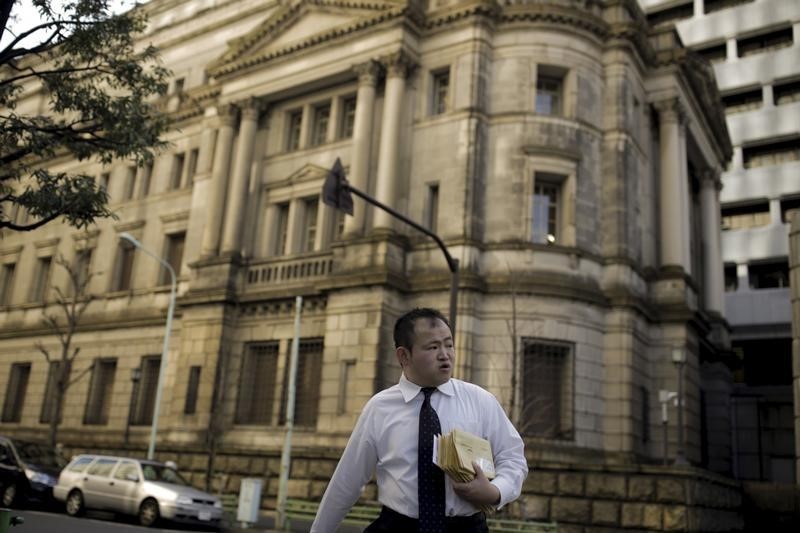Investing.com -- A potential victory by Donald Trump in the 2024 U.S. presidential election could reignite investor interest in the so-called "BoJ trade," according to J.P. Morgan analysts.
The strategy, which involves going long on Japanese equities and banks while shorting the yen and Japanese government bonds (JGBs), gained traction after the Bank of Japan's (BoJ) policies created a conducive environment for inflation and economic growth.
The "BoJ trade" flourished on the back of persistent negative real rates and a weakening yen, which boosted inflation expectations in Japan. These factors encouraged market participants to buy Japanese assets, particularly equities and banks, while taking short positions on the yen and JGBs.
However, the recent unwinding of the trade was triggered by rising U.S. recession fears, particularly after the July jobs report, which fueled expectations of aggressive rate cuts by the Federal Reserve. This shift in the U.S. monetary policy outlook threatened to strengthen the yen, undermining the inflationary narrative in Japan and leading to a significant pullback in the "BoJ trade."
“The unwinding of the “BoJ trade” since the beginning of August has been very significant in the futures space,” JPMorgan (NYSE:JPM) said in a note.
The bank highlights that around one-fifth of the long positions in Nikkei futures and one-third of the short positions in yen futures have been unwound so far. While there are "signs of stabilization" in this unwinding process, the report stresses that these are "tentative" at best.
“In our mind, a further reduction in concerns over US recession risks and perhaps a resolution of election uncertainty could be required for the unwinding of the “BoJ trade” to stop. Clearly, next week’s US payroll report would be critical in gauging US recession risks,” the report states.
But beyond then, a Trump win could reverse the current trend, JPMorgan strategists believe. His policies, characterized by inflationary pressures, would likely reduce the need for the Federal Reserve to cut rates aggressively, potentially reigniting interest in the "BoJ trade."
